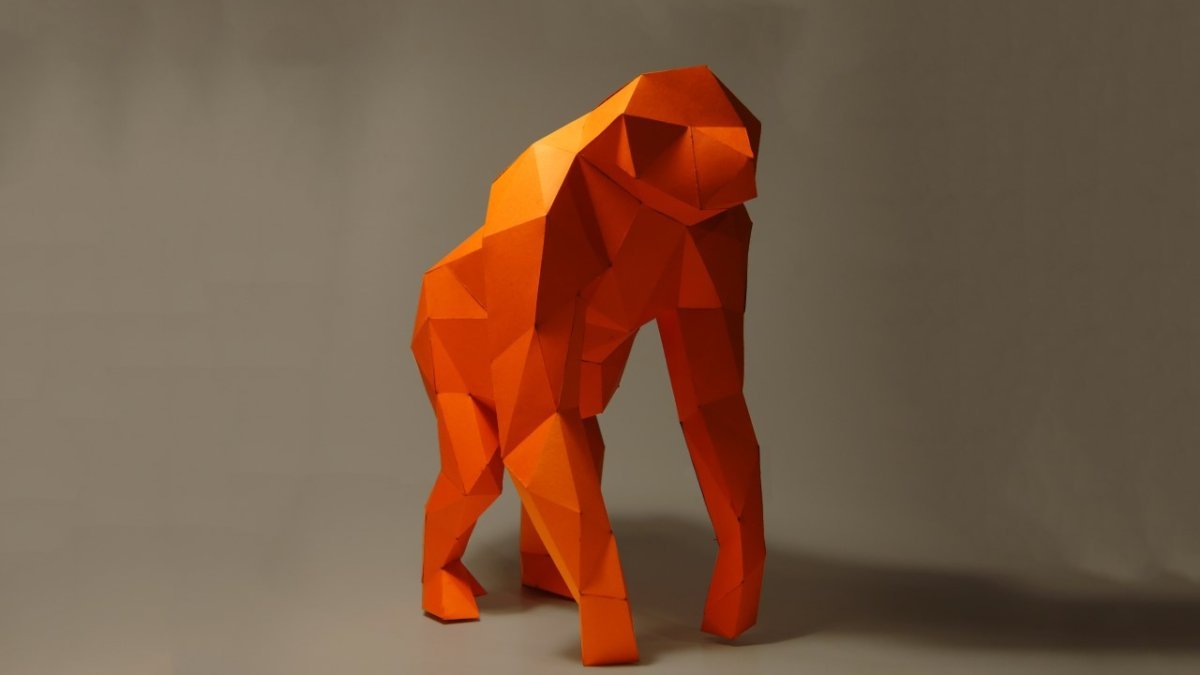
by Alice Hutchins
His arms were small enough to fit through the bars of the cage, they reached out to her and as she knelt beside him he wrapped his hands around her fingers in the same instinctive way a baby would. He leaned close to her so that she was cradling him with only the bars between them. His fur was the colour of autumn leaves, shades of orange and deep sunset reds, but there were patches missing and it was easy to see the sore skin underneath. The dark round eyes that looked up at her were tired, as if the little creature had been in the cage so long he had forgotten to be afraid of it…
The above extract is from a longer piece of my creative writing which can be found here, based on the true story of Muaro, an orphaned baby orang-utan who was saved by International Animal Rescue. It is believed that his mother was killed when their forest was destroyed by loggers, and this is a case that is becoming all too frequent. Since the release of Iceland’s banned advert ‘Rang-tan in my bedroom’ the palm oil issue has been at the forefront of media, and has sparked a UK-wide debate into how we can conserve this beautiful species and its habitat, and how we can lessen the impact that humans are having on the ecosystem and climate change.
The effects of deforestation leave a very visible mark on the land, and those who have experienced it have been inspired to address the topic of how to reverse this damage in future:
Driving up to the sanctuary, we were overwhelmed with a huge sense of loss. Surrounded by hectare after hectare after hectare of palm plantations, it felt impossible that there could be any space left for the orangutans.’ – Ella Hayward.
There are several controversial ideas about how to reduce the harmful aspects of deforestation. Some follow Iceland’s example of boycotting palm oil altogether, after the beautifully descriptive and powerfully emotive writing of the piece raised awareness into a long-running problem that is only now being recognised. However, some argue that to boycott palm oil altogether may not solve the deforestation problem, but simply displace it in another direction:
‘Compared to other oil producing plants such as rapeseed or soybeans, palm oil plants yield 4 to 10 times more oil per unit of land AND require far less pesticide and fertiliser. So if we pressure large companies to ditch the palm oil what will they use instead? Soy? […] soy is already a huge contributor to deforestation, a move away from palm to this more land hungry crop would be like cutting off Mother Earth’s nose to spite her lovely green face!’ – Lindsey_Stripped
The writer of this article also suggests that boycotting palm oil could cause instabilities in families and communities who are unable to support themselves without this industry, potentially leading to more illegal logging and further deforestation. After reading her arguments, I contacted a professor at the University of Essex, a leading researcher into disaster management and climate change, who stated:
‘Habitat loss either via land use or climate change is the largest contributor to species decline and loss globally – and development of palm oil production is part of that. Avoiding less sustainable palm oils is an action people could take. But plant based oil production has a low ecological footprint compared to those more difficult actions we don’t like to take like eating much less meat, modifying our travel and as much as it will hurt as we move towards Christmas – engaging less in unnecessary consumerism. We need to eat less, buy less, waste less and reuse more to slow deforestation, habitat loss and climate change.’ – Thomas Cameron
It is clear that palm oil is an issue, but it is not THE issue. Consumerism, and a growing global demand for meat, produce and disposable products is placing more strain on our planet than ever before. Many of the earth’s eco-systems are now being effected, and we are losing a wealth and variety of life from our seas, our mountains, and our forests. It is evident that a drastic difference needs to be made in the world to prevent stories like Muaro’s repeating themselves.
‘Although orangutans are loved by so many, so few are willing to make a change to help them.’ – Michele Dore, a visitor to the Orangutan Sanctuary in Malaysia.
The human race has incredible impact on the globe, and whether that impact is harmful or beneficial is up to all of us to decide.
Further reading about supporting Orangutans.
Alice is a Creative Writing Graduate from the University of East Anglia and has recently joined the ImpacTeam, Department of Government at the University of Essex. This is Alice’s travel blog.
The photograph is of a lovely sculpture by the Artist Douglas Dodds.